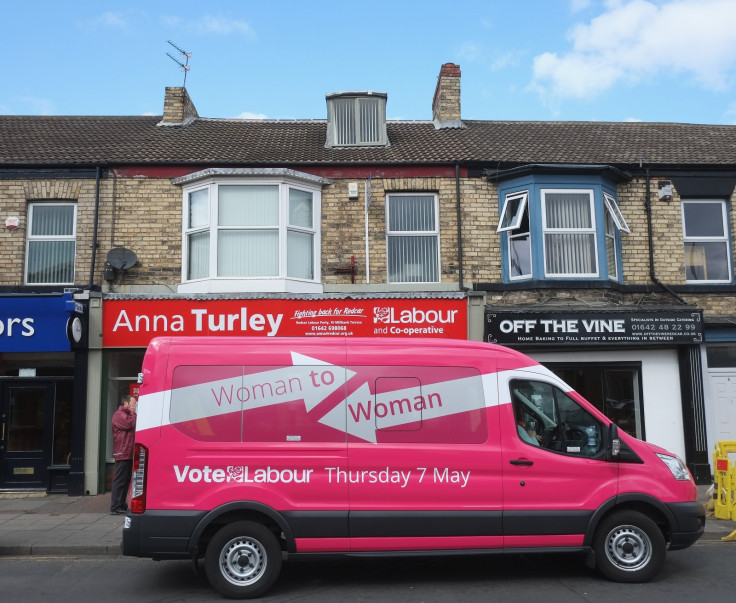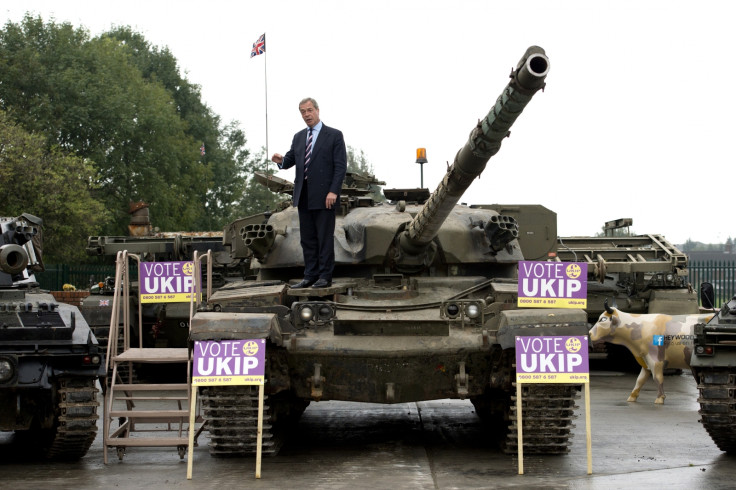Election 2015: Do women vote differently to men?

The "women's vote" is announced as crucial in every election campaign and this time round is no exception. Ahead of the general election on 7 May, the parties are making a concerted effort to appeal to women, who make up 52% of the British electorate.
Labour's magenta bus, the brainchild of Harriet Harman, has been doing the rounds of the UK, while David Cameron changed the Tory rhetoric early in 2014 by announcing Britain would "lead the charge on women's equality" – before increasing the number of women to his cabinet to a total of five. While Nick Clegg has been pushing childcare, Ukip pledged to rid women of the so-called tampon tax, in exchange for leaving the EU.
There is, of course, a lot to play for. As well as making up the majority of the voting public, women are more likely to be undecided voters, so potentially have a bigger say in who forms the next government. But do they really vote differently to men and is there such a thing as the "women's vote"?
'Not much difference'
Some voting patterns have emerged, with women slightly more likely to vote Conservative over Labour. Women are also more likely to vote for the Green Party, while more men vote for the SNP and BNP. Ukip appeals mainly to male voters – something Nigel Farage attested to while standing on a tank in Heywood, Lancashire, in 2014.
In general, though, there is not much difference between the ways men and women vote. Anthony Wells, director of YouGov's political and social opinion polling, says the alleged differences are unsubstantiated. He says: "Essentially, there isn't very much difference – a lot of the commentary about supposed difference is on very flimsy evidence.
Essentially, there isn't very much difference between men and women voting – a lot of the commentary about supposed difference is on very flimsy evidence
"On which issues are important and what people think on issues, again, there isn't really a huge gulf between the genders. On most issues, men and women think much the same – women tend to be a bit more pessimistic about the economy and a bit more opposed to cuts."
There are some slight differences in political attitudes. Research shows women are more likely to place a stronger emphasis on education and health, while men, generally speaking, give relations with the EU and taxation greater priority. Although women say they are less interested in politics than men – 48% of men and 32% of women reported being interested in 2010 – this gap is reversed when they are asked about the specific policy areas of health and education.
Still, there are certain issues that divide opinion. "There are a few issues where there are really big contrasts," Wells says. "The most obvious are questions on foreign intervention – women tend to be more anti-war – nuclear power and nuclear weapons, where women tend to be more opposed than men."

'Not one homogeneous group'
It is stating the obvious that all women are different and they are likely to as vote as diversely as men. There are some who regard the "women's vote" as sexist and patronising, considering nobody ever mentions the "men's vote". Even the language used to describe the efforts to appeal to women are romanticised, such as parties "wooing" women with policy pledges over childcare.
There are as many differences between women voters as there between men and women, for example, differences between younger and older women and so on, and no do women view issues simply through a prism of their gender
"Talk of the 'women's vote' often misses the point a bit," Wells says. "Of course the women's vote is decisive – most people are women, most voters are women. But women in no way vote as a block.
"A retired female middle class voter in the home counties is likely to have very different political views to a young, female student from a working-class background in the north. Just because they are both women, you can't put them in a single coherent block of voters."
The underlying differences in the political preferences of women, as is the case with the male electorate, shift with major events and national mood. It is therefore important not to treat women voters as one "homogeneous group", says Gideon Skinner, head of politics at Ipsos Mori.
"There are as many differences between women voters as there between men and women, for example, differences between younger and older women and so on, and no do women view issues simply through a prism of their gender," Skinner says. "Other aspects such as their age, ethnicity, social circumstances, education, values and so on are all just as important."
'It gets them airtime'
Key issues are discussed under the classification of the women's vote, such as domestic violence, childcare, health, sexism in the workplace, the gender pay gap and the lack of female political representation. But by targeting solely women, critics say we run the risk of undervaluing the input men need to have to address these problems. So is targeting women as a group really a successful election strategy?
"It maybe would be if the parties were coming up with campaigns that weren't patronising or severely outdated," says Freya, 25, from London. "But it's not productive to refer to topics that apply to both men and women as only 'women's issues'."
There is also one underlying reason why political parties continue to push the women's vote, though. "It can be counter-productive, if it leads them down a blind alley," says Philip Cowley, professor of parliamentary government at the University of Nottingham. "But equally, it both gets them airtime and enables them to avoid the charge that they don't care."
© Copyright IBTimes 2025. All rights reserved.






















